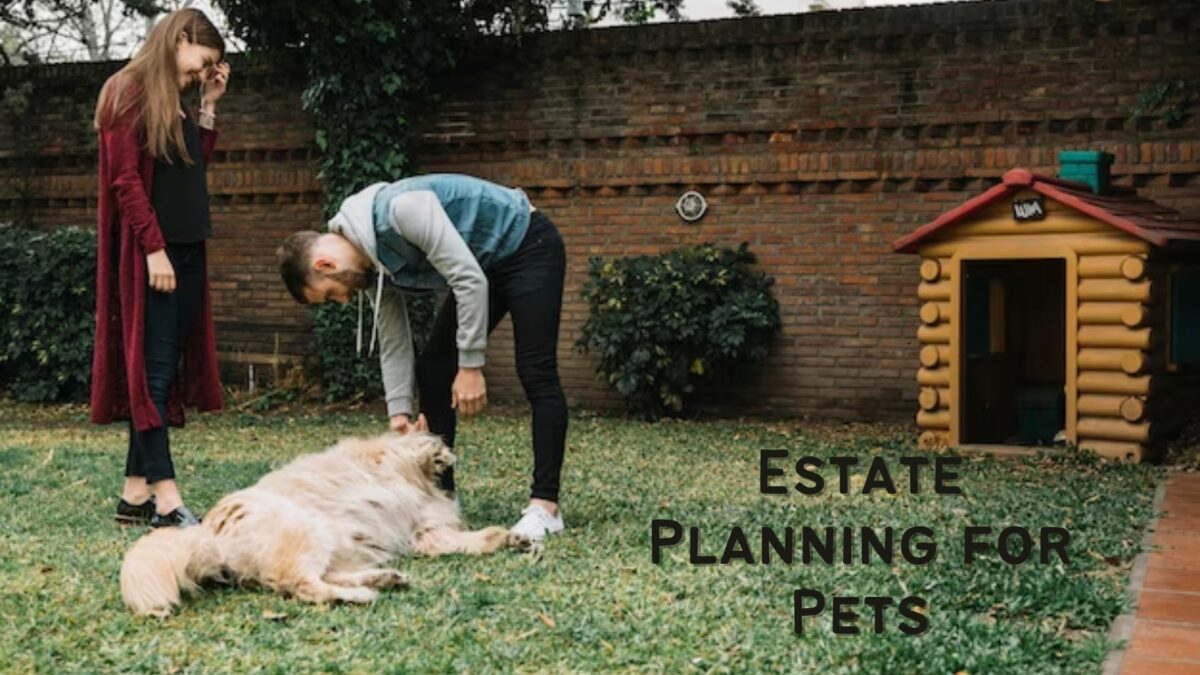“If there are no dogs in Heaven, then when I die I want to go where they went.”
–Will Rogers
“You think dogs will not be in heaven? I tell you, they will be there long before any of us.”
–Robert Louis Stevenson
“If I have any beliefs about immortality, it is that certain dogs I have known will go to heaven, and very, very few persons.”
–James Thurber
“My dog is worried about the economy because Alpo is up to $3.00 a can. That’s almost $21.00 in dog money.”
–Joe Weinstein

(Yes, I went nuts with the quotations.)
It’s no mystery that I am a dog lover. Here’s more proof.
I’m also a real estate investor. Again, anyone who’s read me for a while knows that’s no mystery either.
To me, the best deals in real estate are the ones where the buyer takes advantage of someone else’s inconvenient circumstances.
Unfortunately, sometimes those circumstances involve the passing of a house owner and the inheritance of said house by unwilling family members who live several states away.
Most of the time, at least some of it was planned – the person wanted to age in place, had a child to take care of her/him, and passed in a way that they wanted. The child, having done her duty (it’s almost always a she in these situations) as a caretaker, is ready to move on, and part of moving on involves getting rid of the parent’s house.
However, I’ve encountered situations where there was little to no planning involved, and the house is a decrepit wreck. Of course, I’m seeing opportunities where others see misery.
But, to me, some of the saddest situations are the ones where there were pets involved and nobody thought about what would happen to the pets.
When we were in Chile, we saw a lot of stray dogs. I asked someone why there were so many strays.
“Someone dies and has pets. The kids don’t want the pets, so they kick the pets out of the house,” was the response.
In the situations I’ve seen, it’s even worse.
The pets aren’t kicked out.
They’re abandoned in place.
I’ve gone into homes filled with pet waste and pets who haven’t had human attention or care since their owner(s) passed away goodness knows how many days or weeks ago.
That situation breaks my heart. My “crazy cat lady” gene almost kicks in and takes over, but instead, we try to get the inheritor of the place to call a local no-kill shelter to take care of the abandoned animals.
Don’t Forget Your Other “Kids” in Your Estate Plan!

A lot of these situations could be addressed with some simple estate planning. Of course, most of these people probably didn’t do much human estate planning in the first place, but I’m sure some did and they still didn’t think about what would happen to the animals in their care if they were to pass away.
There are two different scenarios that we pet owners must contemplate with regard to care for our pets if we are unable to do so ourselves.
Disability of the Owner

As much as we don’t like thinking about our passing, we know that it’s going to happen, so most of us do at least a generalized version of estate planning to help others deal with our passing.
What’s much more likely to happen than premature death, though, and one that we rarely think about, is our inability to work.
If we do disability planning and perform the analysis to figure out how much disability insurance we need, we only think in terms of our own care. We think about how much it would cost to get in-home help or to replace lost income.
However, if we have pets, particularly active ones like certain breeds of dogs who need walking multiple times a day (like ours), a disability could create an additional burden on a caretaker.
You may want to consider adding into a disability budget the cost of a dog walker and transportation for getting your pet to the vet for regular checkups. Alternatively, just as we’ll discuss below, you may want to identify an alternate home for your pet in the event that you cannot take care of your pet anymore and set aside a sum of money to pay the new caretaker for your pet’s care.
Your Unexpected Passing
Note: Many of these steps are taken from Michigan State University’s Animal Legal and Historical Center’s excellent article titled “Pet Animals: What Happens When Their Humans Die?” If you want to get into the deeper details about the laws regarding pets and their treatment as property (particularly the inability, in some states, to give gifts to pets as part of your estate plan), it’s worth a read.
Most of us assume that if we step out in front of the beer truck tomorrow, someone will take care of our pets for us.
The problem is that we never identify who that someone is.
In order to remedy that problem, we need to take two steps:
- Identify who that someone is. Identify who you would want to take care of your pet(s) in the event of your unexpected passing. What sort of lifestyle would you want the pet to have? What sort of care does your pet need? Does your pet have any conditions that require special care? Favorite toys? Hypoallergenic dog food? Have a detailed discussion just like you would with a potential guardian of your children.
- Create an ICE notification for your pet. Just like we saw in “ICE, ICE, Baby,” we want to have an “In case of emergency” notification for ourselves and our pets. If your pet is microchipped, you could include the notification details in the microchip download. If not, add an additional tag to your pet’s collar with emergency contact information. Give that contact information pertinent documentation regarding your pet, such as where to find food, vet contact information, and other things that they may need to know in order to take care of your pet.
Once you’ve identified your pet’s caretaker, you should help that caretaker out with the financial burden of caring for that pet. There are two predominant ways to accomplish this:
- A caretaker trusts the pet: This is the more expensive route to go, but one that ensures that your pet receives the care that you desire for your pet to have. It will require a trustee and a beneficiary, both of whom should know your desires. The trustee will be required to do occasional check-ins on the pet to ensure that your pet is receiving care according to your wishes.
- Leave some money to the caretaker in the will and state that you wish for the caretaker to also take ownership of your pet: this is the route that we chose. Also, make sure that you specify the actual animal and the description (e.g. don’t just say “Fluffy, a black cat”), as that could leave your estate open to fraud. The will must go through probate, so people could bring in black cats with “Fluffy” nametags and try to claim the money. It’s rare, but not impossible. Spend the extra minute to identify the breed, marking, name, microchips (if applicable), and potentially a link to a picture of the pet. The downside to this approach is that you don’t get to ensure, legally, specific care as you can with a trust, but, on the other hand, it’s much simpler and cheaper. The other consideration is that will go through probate, which means that your caretaker could have to wait several months to receive the money that you stipulate. You may want to have a separate pet care account that has the caretaker as a payable-on-death beneficiary.
If you love your pets like we love our dogs, then the last thing you want to have happen is for that animal to be abandoned in case of your unexpected demise or incapacity. Taking a few extra minutes to do the proper estate planning for your pet will help your pet make the transition and avoid abandonment.
Oh, and perhaps this might encourage you to do your own estate planning while you’re at it!
Author Profile
- John Davis is a nationally recognized expert on credit reporting, credit scoring, and identity theft. He has written four books about his expertise in the field and has been featured extensively in numerous media outlets such as The Wall Street Journal, The Washington Post, CNN, CBS News, CNBC, Fox Business, and many more. With over 20 years of experience helping consumers understand their credit and identity protection rights, John is passionate about empowering people to take control of their finances. He works with financial institutions to develop consumer-friendly policies that promote financial literacy and responsible borrowing habits.
Latest entries
 Low Income GrantsSeptember 25, 2023How to Get a Free Government Phone: A Step-by-Step Guide
Low Income GrantsSeptember 25, 2023How to Get a Free Government Phone: A Step-by-Step Guide Low Income GrantsSeptember 25, 2023Dental Charities That Help With Dental Costs
Low Income GrantsSeptember 25, 2023Dental Charities That Help With Dental Costs Low Income GrantsSeptember 25, 2023Low-Cost Hearing Aids for Seniors: A Comprehensive Guide
Low Income GrantsSeptember 25, 2023Low-Cost Hearing Aids for Seniors: A Comprehensive Guide Low Income GrantsSeptember 25, 2023Second Chance Apartments that Accept Evictions: A Comprehensive Guide
Low Income GrantsSeptember 25, 2023Second Chance Apartments that Accept Evictions: A Comprehensive Guide

